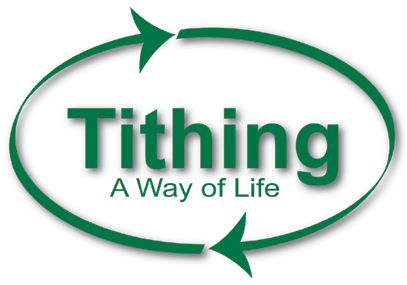 There is no basis in the Mosaic Law for the practice of tithing 10% of our total annual income to the local church. The only commands about tithing in Scripture are for the people of Israel, and they are to tithe 10% to their own family for two years, and then in the third year, give 10% to the Levitical Priests and the community poor.
There is no basis in the Mosaic Law for the practice of tithing 10% of our total annual income to the local church. The only commands about tithing in Scripture are for the people of Israel, and they are to tithe 10% to their own family for two years, and then in the third year, give 10% to the Levitical Priests and the community poor.
As followers of Jesus, we are not under the Law of Moses, and do not need to follow it as the people of Israel did. Nevertheless, we can look to the Law of Moses for principles and ideas on how God might want us to live our lives today.
Tithing Today
If we wanted to draw some principles from the Mosaic Law about tithing for our practice today, we could say that families should put aside a portion of their income every year to enjoy life by participating in special festivals and feasts with their family. Every third year, some funds can also go to support a ministry of our choosing, and for taking care of the poor, the orphans, and the widows in our community.
If we were going to try to follow closely the Mosaic Law about tithing, a family’s budget might look like this:
Year 1: 10% for Family Celebration
Year 2: 10% for Family Celebration
Year 3: 10% for Ministry Support and Loving Others
Technically, they went through this cycle twice, and then in the seventh year, gave the land a “rest” so that there was no planting or harvesting, and therefore, no tithing from the crops. I doubt that anyone today is able to take every seventh year off from work, but that also was part of the cycle of God’s economy for Israel. Every fiftieth year, they would have a huge party for a year, would cancel all debts, and all land would revert to the original owner, but again, I doubt most people would want to practice this part of God’s economic plan either. But that three-year cycle is something that many families could and should implement.

This may mean spending less on ourselves!
Now that I have recommended using 10% of your income for family celebrations, let me offer a word of caution. I am not recommending an additional 10% over what you are already spending. In modern Western Civilization, we suffer from something which almost nobody else in the history of the world has suffered from: materialistic abundance.
The reason for the 10% tithe for a family celebration is because families didn’t normally have the time or the money to do such things. Living in an agrarian society, most Israelites worked from sun-up to sun-down, six days a week, taking only the Sabbath (Saturday) off as a day of rest. All this work barely provided enough food to feed the family. So saving 10% of their income for a special family celebration was something unique and exciting.
Today, however, most of us work much less, and spend much more than 10% a year on fun and feasting. We go out to eat in restaurants and gorge ourselves on a weekly basis. We take family trips a few times a year. I would not be too surprised if some families are spending way more than 10% of their income and feasting and family celebrations.
If you take everything you spend on eating out, going to movies, taking trips, and “enjoying life” and it comes to more than 10% of your annual income, you might actually want to cut back on the amount of money you are “tithing” to your family, and spend more on loving and serving others, helping the poor, taking care of orphans and widows, and showing others the love of Jesus. This truly is the tithe that matters to God (cf. Isa 58:6-9).




We have definitely given in to the lifestyle of the mega-consumer. We spend so much on ourselves and little to help others or god’s church. I have risen above the 10% tithe and do not miss a penny that I have given to god.
Rick,
Depending on how we give and where we give, the money is usually better off in service to God, than in our own bank accounts or entertainment funds. Good job with your generosity!
We usually include others in our celebrations including, but not limited to, widows, widowers, the divorced, single people, the lonely and those struggling financially. Charles Dickens’ character Mr. Fezziwig, in “A Christmas Carol” comes to mind as a place to start. (See the Wikipedia piece on Fezziwig.)
Sam,
There is a great need in the world for the sort of community life that you are developing in your neighborhood. May your tribe increase!
Whoa buddy!
Cool the jets, man! Now you’re really treading on “sacred/holy ground”! 😉
It was one thing to suggest that “The Church’s” tradition of tithing to support its opulance (sp?) is not necessary (or biblical). Most “of us” find that very intriguing… BUT, “my” gold tipped boots are getting a little scuffed at your insinuation that I’m already giving too much to myself for my weekly (or daily) “family celebrations”.
What are you doing? Trying to use “the Bible” to convict me of gluttony (etc.)? That’s harsh man… keep it up!
M.
p.s. – I know you’re not trying to “use” the Word for anything… must be Someone else, eh?
Mark,
Great comment! I know you are speaking tongue-in-cheek, but some people get really upset at this stuff!
Hmm…my question is, why would we want to look to the Levitical Law for how to do anything if we are not under it? There are some good thoughts on that in some of Paul’s letters – along with ideas on what giving might look like out from under the Law. 😀
Jeannette,
Maybe we wouldn’t. I am just pointing out how we could apply the Mosaic law today for those who want to look at it for their guidance.
I take a view of God’s law that there is an overarching law above the Mosaic law, which is basically to love God and love others.
In each “era” of history, we have to listen to God and each others to find out how best to apply this overarching law in our own time and culture. The Mosaic law was how they applied it in their time and their culture. So in that sense, it can be used as a guide for how the overarching law was applied in other times and other cultures, and therefore might help us learn how to apply it in ours.
If two-thirds the tithe is earmarked for “family celebration” and one-third is designated for the poor, orphans, widows and people in need, what part if apportioned for support of the our local church and the pastor?
It seems to me that two-thirds of the tithe should be set aside for the “church-family celebration” (not personal family who would be cared for out of the 90-percent after the tithe. It also occurs to me that indeed the remaining one-third should be given to the poor, orphans, widows and people in need.
Of course, the church family also has people with less wealth and the very old people who may be poor and in need of things that individuals cannot afford. Unfortunately, the elderly, in many cases, cannot rely upon family-relatives for help and support.